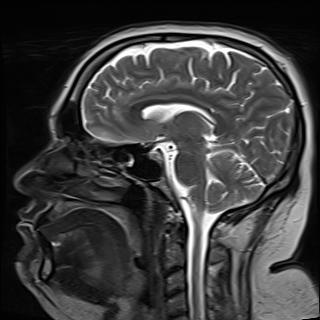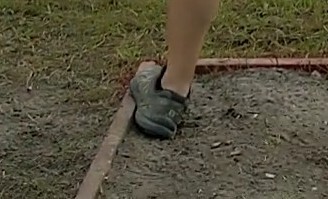Ok. This covers every ipv6 and ipv4 address.
“^\s*((([0-9A-Fa-f]1,4}:){7}([0-9A-Fa-f]{1,4}:)6}(:[0-9A-Fa-f]{1,4})|:))|(([0-9A-Fa-f]1,4}:){5}(((:[0-9A-Fa-f]{1,4}){1,2}))|:))|(([0-9A-Fa-f]1,4}:){4}(((:[0-9A-Fa-f]{1,4}){1,3}))?:((25[0-5]|2[0-4][0-9]|1[0-9][0-9]|[1-9]?[0-9])(.(25[0-5]|2[0-4][0-9]|1[0-9][0-9]|[1-9]?[0-9]))3})):)3}(((:[0-9A-Fa-f]{1,4}){1,4}))0,2}:((25[0-5]))|:))|(([0-9A-Fa-f]1,4}:){2}(((:[0-9A-Fa-f]{1,4}){1,5}))0,3}:((25[0-5]))|:))|(([0-9A-Fa-f]1,4}:){1}(((:[0-9A-Fa-f]{1,4}){1,6}))0,4}:((25[0-5]))|:))|(:(((:[0-9A-Fa-f]1,4}){1,7}))0,5}:((25[0-5]))|:)))(%.+)?\s*$”
Lord have mercy
Please don’t. Use regex to find something that looks like an IP then build a real parser. This is madness, its’s extremely hard to read and a mistake is almost impossible to spot. Not to mention that it’s slow.
Just parse [0-9]{1,3}.[0-9]{1,3}.[0-9]{1,3}.[0-9]{1,3} using regex (for v4) and then have some code check that all the octets are valid (and store the IP as a u32).
And dupe check. 0.0.0.0 and 000.000.000.000 may both be valid, but they resolve the same
Fuck that, if for whatever reason I’m writing an IP validator by hand I’m disallowing leading zeros. Parsers are very inconsistent, some will parse 010 as 10, others as 0o10 == 8 (you can try that right now with a POSIX
ping). Talk about a footgun.some will parse 010 as 10, others as 0o10 == 8
…and that’s me in the fetal position, thanks.
Definitely, tho if you store it as a u32 that is fixed magically. Because 1.2.3.4 and 1.02.003.04 both map to the same number.
What I mean by storing it as a u32 is to convert it to a number, similar to how the IP gets sent over the wire, so for v4:
octet[3] | octet[2] << 8 | octet[1] << 16 | octet[0] << 24
or in more human terms:
(fourth octet) + (third octet * 256) + (second octet * 256^2) + (first octet * 256^3)Because 1.2.3.4 and 1.02.003.04 both map to the same number.
But 10.20.30.40 and 010.020.030.040 map to different numbers. It’s often best to reject IPv4 addresses with leading zeroes to avoid the decimal vs. octal ambiguity.
I don’t know why anyone would write their IPs in octal, but fair point
It’s not about how people write them, it’s how parsers parse them. IPv4 has been around since 1982, and most parsers interpret leading zeros as octal.
IPv6 was a mistake. We should have just added an addition octet
That would allow for like, 2 trillion devices? Feels like a bandaid, my dude. Next you’re gonna suggest a giant ice cube in the ocean once a year to stop global warming.
So add two more octets:
Moat companies will still just use something like 10.0.13.37.0.1
IPv6 is not made with internal networks in mind lol
Never claimed it was, please quote me where I said as much
My dude, you used the 10.xx private IP as an example. Why wouldn’t they assume you were referring to internal networks?
I thought it was pretty clear with me adding 13.37 that I was making a joke, the earlier post spoke about how just adding one octet would still be too few addresses, so I joked about adding one more octet.
And nuke the hurricanes
Hurricanes cannot cross the equator. The equator is an imaginary line, and hence has zero mass. We can end every hurricane using zero point zero energy (0.0).
ONCE AND FOR ALL
You could follow this logic and add 2 alphanumeric digits before 4 numeric octets. E.g. xf.192.168.1.1
This would at least keep it looking like an IP and not a Mac address. Another advantage would be graceful ipv4 handling with a reserved range starting with “ip” like ip.10.10.10.1
Oh yeah, great, let’s change the fundamental protocol on which all the networks in the world are based. Now two third of the devices in the world crashed because you tried to ping 192.168.0.0.1
that WOULD be quite funny for the first second or 2…
Could have sped up adoption significantly.
They played us for absolute fools!
Plus the MAC address
It’s always a treat to debug a regex of that size.
Made that joke in an interview once.
They didn’t think it was funny. They truly thought Regex was the solution to, but never the cause of, all problems.
They wanted to make a Regex to verify every single address in the world. Dodged a bullet
Holy hell yeah you did. How would you go about doing that in a single expression? A bunch of back references to figure out the country? What if that’s not included? Oy.
You wouldn’t. It’s not possible. Which is what I told them.
And why would you want to? Legally if you change the given address, and it fails to get delivered - that is on you. Not them.
Some countries have addresses that are literally ‘Last house on the left by the Big Tree. Bumban(Neighborhood). NN (Country)’. Any US Centric validation would fail this but I assure you - mail gets delivered just fine.
You’re more of a perl programmer than network engineer :P
I knew there would be someone with the regex.
.*
Technically, this one also matches everything:
*exits the room*
0.0.0.0/0 0::0/0
You didn’t specify it couldn’t be in CIDR block notation…
::/0
Remember, when we abbreviate an ipv6 address all leading zeros are reduced to a single 0.
E.g
0003 would just become 03
When there are geoups of 4 zeros these can be represented as a single 0 or as a double colon ::
But we can only use the :: once so when summarizing an address containing multiple groups of 4 0s one after the other they can all be abbreviated to a single ::
Eg
fe80:0000:0000:0000:0210:5aff:feaa:20a2 would become fe80::210:5aff:feaa:20a2
Therefore it is perfectly valid to abbreviate an address of 0000:0000:0000:0000:0000:0000:0000:0000 /0 to just ::/0
Eh, I’ve seen some software internally prefer 0::0 instead of just ::0 or :: . Notation wise though you are correct, it is unnecessary.
:00-:ffEdit: Just learnt this can be also noted as:
::-::fWhat about IPv4
0.0.0.0/0
Better hope the goon hasn’t heard of IPv6 either, or you’re toast
::/0
This is gonna take a while…
0.0.0.0
0.0.0.1
0.0.0.2
0.0.0.3
…
0.0.0.0 /0 ::/0
SUCK MY DICK, GRU!
This is the way.
0.0.0.0/0/32
That’s only 1 ip (single host)
one of them has a 7 I’m pretty sure
wow don’t doxx me plz
127.0.0.1, I’m an introvert
0/0
0.0.0.0/0
::
deleted by creator
That’s 1/256th of IPv4
0/0 and ::/0
Funny. I put 0/0 first then reconsidered, but I don’t know why.
My PC’s is now Bob, My router’s Billy…

















